In today’s global marketplace, freight forwarding plays a pivotal role in facilitating international trade, acting as the crucial link between manufacturers and consumers worldwide. This intricate process encompasses the coordination of transporting goods through various modes—be it air, sea, or land—ensuring that products reach their destinations efficiently and safely. Understanding the dynamics of freight forwarding is essential for businesses looking to streamline their shipping operations, reduce costs, and navigate the complexities of customs regulations. In this article, we will explore the key responsibilities of freight forwarders, the types of services they offer, and essential considerations for selecting the right logistics partner for your specific shipping needs. Whether you’re a seasoned importer or just starting to explore international trade, this comprehensive guide will provide you with valuable insights to enhance your logistics strategy.

Understanding Freight Forwarding: What You Need to Know
Freight forwarding is a critical aspect of international trade, serving as a bridge between manufacturers and consumers across the globe. It involves the coordination of the transportation and shipment of goods from one location to another via various modes, including air, sea, and land.
A freight forwarder acts as an intermediary between the shipper and various transportation services. They handle the logistics of moving goods, which includes booking cargo space, preparing shipping documentation, arranging customs clearance, and providing insurance options. Their expertise allows businesses to save time and mitigate risks associated with shipping products internationally.
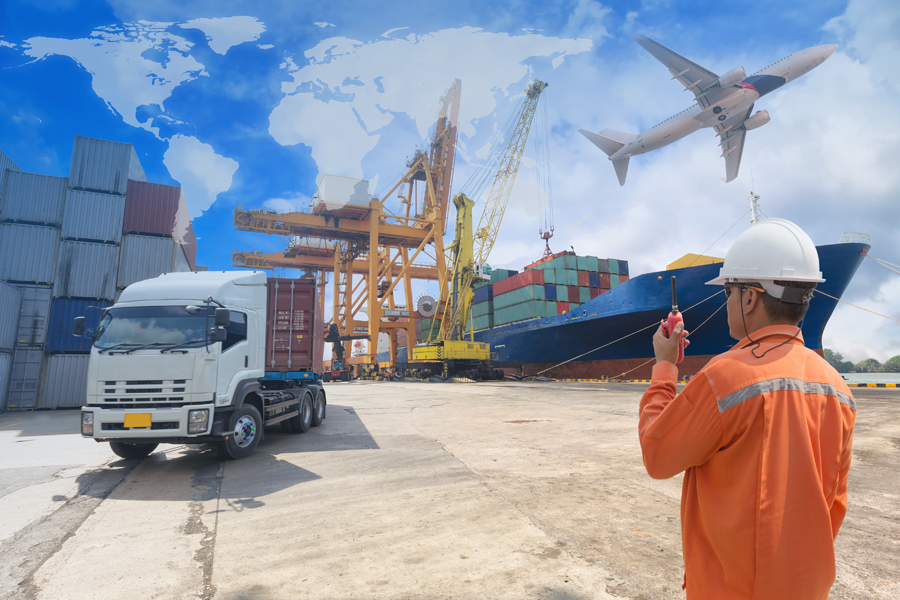
Key Responsibilities of a Freight Forwarder:
- Documentation Preparation: Ensuring all necessary paperwork (invoices, packing lists, and bills of lading) is accurately completed.
- Customs Clearance: Navigating the complexities of local and international customs regulations to facilitate smooth transit.
- Carrier Negotiation: Securing the best rates and terms with carriers, which can significantly affect overall shipping costs.
- Cargo Insurance: Offering insurance options to protect goods against potential damage or loss during transit.
- Tracking and Coordination: Monitoring the shipment’s progress and coordinating with all parties involved to ensure timely delivery.
Types of Freight Forwarding Services
Freight forwarders provide various services tailored to cater to different shipping needs. Key types include:
- Air Freight: Suitable for high-value shipments requiring fast delivery, air freight is often more expensive but efficient for time-sensitive cargo.
- Sea Freight: The most cost-effective option for large quantities of goods, shipping via sea is slower but ideal for bulk items.
- Land Freight: Utilizing trucks or rail systems, this method is practical for both domestic and cross-border deliveries, providing flexibility in routing.
Importance of Choosing the Right Freight Forwarder for Your Business
The choice of a freight forwarder can significantly impact the efficiency and cost-effectiveness of your supply chain. A reliable partner not only ensures timely delivery but also contributes to customer satisfaction and overall business success.
Benefits of a Professional Freight Forwarder
-
Cost Efficiency: A reputable freight forwarder can leverage their industry connections to negotiate lower shipping rates and reduce transportation costs.
-
Expertise and Experience: With in-depth knowledge of local and international regulations, experienced forwarders can help navigate customs processes, thereby minimizing delays and avoiding potential fines.
-
Risk Management: By offering comprehensive insurance services, a professional freight forwarder helps to protect your investment against unforeseen circumstances, ensuring peace of mind while shipping valuable goods.
-
Scalability: As businesses grow, their shipping needs may change. A proficient freight forwarder can adapt to these evolving requirements, providing tailored solutions that can scale with your business.
-
Time-Saving: By delegating logistics to a freight forwarder, companies can focus on their core business operations rather than getting bogged down in the complexities of shipping.
Evaluating Potential Freight Forwarders
When assessing potential freight forwarders, consider the following criteria:
-
Reputation: Look for a provider with a proven track record in the industry. Customer reviews, testimonials, and case studies can offer insights into their reliability and service quality.
-
Global Network: A forwarder with a wide-reaching network can facilitate more efficient shipping routes and options, ensuring flexibility in meeting your needs.
-
Technology Utilization: Many leading freight forwarders use advanced tracking systems and logistics software to streamline operations. Ensure your selected partner is equipped with the necessary technology to provide real-time updates and tracking capabilities.
-
Customer Support: Exceptional customer service is vital in addressing queries and resolving issues promptly. A forwarder should offer dedicated support to deal with shipping concerns as they arise.
A well-chosen freight forwarder can be an invaluable asset to your business. They not only manage the complexities of the logistics process but also ensure that your goods are delivered safely and efficiently, allowing you to focus on growing your business. For businesses looking to import goods from China to Algeria, selecting Dantful International Logistics ensures a highly professional, cost-effective, and high-quality one-stop international logistics service that streamlines all aspects of your shipping requirements.
Dantful International Logistics Services:
- Dantful Ocean Freight Services
- Air Freight From China
- Amazon FBA Freight Forwarding
- WAREHOUSE Services
- One-Stop Customs Clearance Solution
- Cargo Insurance Services in China
- DDP Shipping Services By Dantful Logistics
- Out of Gauge Cargo Transportation Shipping Services
Step 1: Identifying Your Shipping Needs
Before embarking on the freight forwarding process, businesses must articulate their specific shipping needs. Understanding these requirements lays the groundwork for selecting the most suitable logistics solutions.
Determining the Type of Goods to Ship
The nature of the goods being shipped significantly influences various logistical decisions. Considerations include:
- Classification of Goods: Identify whether the items are classified as hazardous, perishable, bulky, or fragile, as this will dictate handling procedures and regulatory requirements.
- Packaging Requirements: Ensure that packaging meets the necessary standards for the type of goods being shipped. For example, fragile items may require specialized cushioning, while perishable goods necessitate temperature control.
- Compliance with Regulations: Different goods may be subject to specific import/export regulations. Familiarizing yourself with these regulations helps avoid delays and potential penalties.
Assessing Volume and Weight Requirements
Understanding the volume and weight of your shipments is essential for selecting the right shipping method and obtaining accurate freight quotes. Key factors include:
- Calculating Dimensions and Weight: Measure and weigh your goods accurately. Shipping costs are typically influenced by the larger of the actual weight or dimensional weight, so precise calculations can lead to cost savings.
- Estimating Frequency of Shipments: Consider how often you will be shipping goods. Regular shipments may benefit from long-term contracts with freight forwarders, which can lower costs.
- Utilizing Storage Space: Evaluate whether you will need warehouse services in addition to shipping. This is particularly important if your goods must be stored temporarily before forwarding. Dantful offers comprehensive Warehouse Services to accommodate such needs.
Choosing the Appropriate Shipping Method (Air vs. Sea)
Selecting the right shipping method hinges on balancing factors such as cost, speed, and the nature of your goods:
-
Air Freight: Ideal for high-value or time-sensitive shipments, air freight provides rapid delivery but at a higher cost. Perfect for electronics, pharmaceuticals, and perishables, air freight typically ensures delivery within a few days.
-
Sea Freight: More economical for bulk shipments, sea freight is suitable for items that are not time-sensitive. While it can take weeks for goods to arrive, it serves as the best option for large volumes of items, such as industrial machinery or raw materials.
-
Cost Analysis: Conduct a cost-benefit analysis of both shipping methods. While air freight is faster, sea freight can be significantly cheaper for bulk shipments. A clear understanding of your budget will aid in making a decisive choice.
Step 2: Researching Potential Freight Forwarders
Once shipping needs have been established, the next step is to identify suitable freight forwarders that align with those requirements. This research is crucial for ensuring a seamless shipping experience.
Utilizing Online Platforms and Directories
Using online resources can aid in identifying potential freight forwarders. Consider the following strategies:
-
Industry Websites and Directories: Platforms such as Freightos, FreightCenter, and other logistics directories allow you to search for suitable freight forwarders based on location, services offered, and customer ratings.
-
Social Media and Forums: Engage with communities on platforms like LinkedIn or specialized logistics forums. These platforms can provide recommendations and insights based on real user experiences.
-
Trade Associations: Organizations such as the International Federation of Freight Forwarders Associations (FIATA) can help you find reputable freight forwarders that meet international standards.
Evaluating Industry Experience and Specialization
Not all freight forwarders are created equal; their experience and area of specialization can greatly influence the level of service you receive. Consider the following:
-
Years in Business: Look for forwarders with a proven track record. Experience in handling specific types of cargo or navigating particular routes can indicate reliability and expertise.
-
Specialization: Some forwarding companies specialize in specific industries, such as e-commerce, pharmaceuticals, or automotive. Choosing a forwarder with expertise in your industry can enhance the handling of your goods and compliance with regulations.
Checking Reviews and Testimonials
Customer feedback is invaluable when assessing potential freight forwarders. Investigate the following:
-
Online Reviews: Websites like Trustpilot or Google Reviews can provide insights into the experiences of previous clients. Pay attention to both positive and negative reviews to gauge overall service quality.
-
Case Studies and Testimonials: Reputable freight forwarders often showcase case studies or client testimonials on their websites. These can provide concrete examples of how they handled specific challenges.
-
Requesting References: Don’t hesitate to ask freight forwarders for references from past clients. Speaking directly with other businesses can provide deeper insight into their reliability and effectiveness.
By effectively identifying your shipping needs and thoroughly researching potential freight forwarders, businesses can streamline their logistics processes and ensure efficient international trade. For companies looking to import goods from China, Dantful International Logistics provides tailored solutions, ensuring a highly professional, cost-effective, and high-quality experience. Explore Dantful’s services to enhance your shipping strategy today.
Step 3: Evaluating Services Offered by Freight Forwarders
When choosing a freight forwarder, evaluating the range of services they provide is crucial. Comprehensive services can enhance your shipping experience and address specific logistical needs. Below are key areas to assess when considering potential partners.
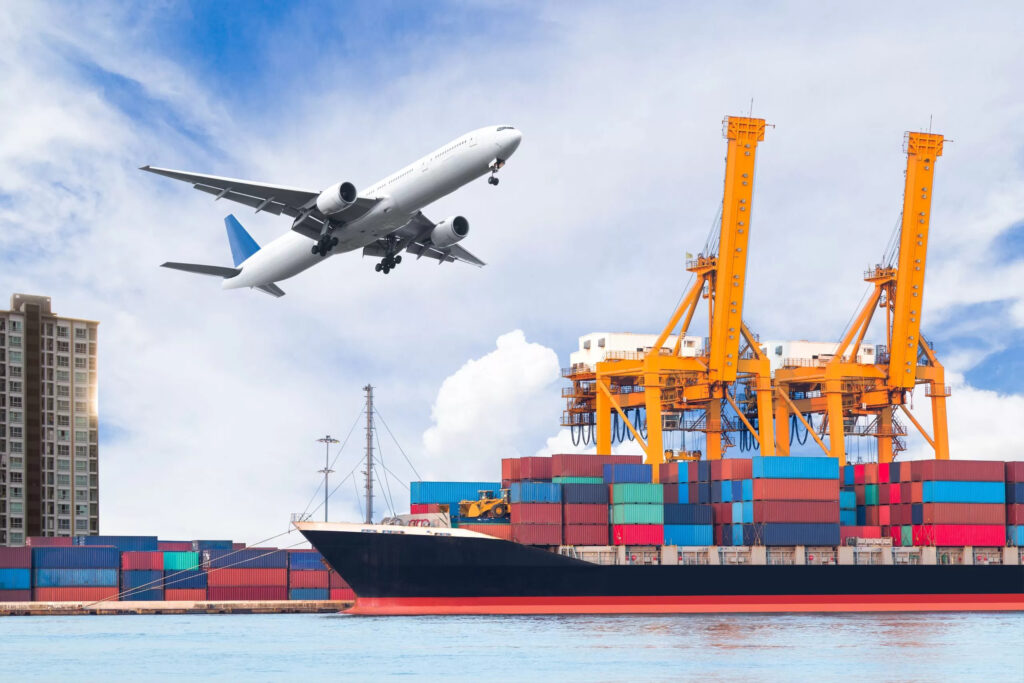
Understanding Customs Clearance and Documentation Services
Customs clearance is an essential component of international shipping, and effective management of this process can prevent costly delays. It’s important to evaluate how well potential freight forwarders handle customs and documentation:
-
Expertise in Customs Regulations: A proficient freight forwarder should have a strong understanding of both local and international customs regulations. They should be able to navigate these complexities efficiently, ensuring that your shipments comply with all necessary legal requirements.
-
Documentation Preparation: Confirm that the freight forwarder prepares all necessary documentation, such as commercial invoices, packing lists, and bills of lading. Proper documentation is vital for smooth customs clearance and can significantly impact the speed of delivery.
-
Customs Brokerage Services: Some freight forwarders also offer customs brokerage services. This means they can represent you before customs authorities, manage duties and taxes, and facilitate the smooth release of your goods.
Assessing Additional Services: Insurance, Packaging, and Warehousing
The availability of additional services can greatly influence your shipping strategy. Evaluate the following aspects:
-
Insurance Services: Inquire about the insurance options provided by the freight forwarder. Protecting your cargo against potential loss or damage during transit is essential, especially for high-value items. A reputable forwarder should offer various insurance plans that cater to your needs.
-
Packaging Solutions: Assess whether the freight forwarder offers packaging services. Proper packaging is crucial for preventing damage, especially for fragile or sensitive items. The availability of customized packaging solutions can enhance the safety of your goods during transit.
-
Warehouse Services: If your business involves storing goods before shipment or requires temporary storage during transit, inquire about the freight forwarder’s warehousing capabilities. Efficient warehousing services can help streamline your logistics operations, providing added flexibility.
Inquiring About Tracking and Customer Support
Effective tracking and customer support are vital for managing the shipping process. Consider the following:
-
Real-Time Tracking: A reliable freight forwarder should offer tracking services that allow you to monitor your shipment’s progress in real time. This transparency is essential for keeping all stakeholders informed and managing expectations.
-
Customer Support Availability: Assess the availability and responsiveness of the freight forwarder’s customer support. Effective communication is critical during shipping, especially if issues arise. Determine whether they provide dedicated account managers or support teams that can assist you with inquiries or concerns.
-
Communication Channels: Evaluate the modes of communication offered by the freight forwarder, whether through phone, email, or online chat. A variety of communication channels can enhance accessibility and make it easier for you to resolve issues quickly.
Step 4: Comparing Quotes and Pricing Structures
After identifying potential freight forwarders and evaluating their services, the next step is to compare quotes and pricing structures. An informed analysis of costs will help you make the most cost-effective decision.
Analyzing Cost Components: Shipping, Handling, and Insurance
Understanding the breakdown of costs associated with shipping is essential for evaluating quotes effectively. Key components include:
-
Freight Charges: These are the primary costs associated with transporting goods, typically calculated based on weight, volume, and distance. Ensure you compare these charges across different forwarders to identify competitive rates.
-
Handling Fees: These fees cover the services provided while loading and unloading your cargo. They can vary significantly based on the freight forwarder’s policies and the nature of your goods.
-
Insurance Premiums: Review the costs associated with insuring your cargo. This can vary based on the declared value of the goods and the level of coverage provided. Ensure you factor this into the total cost when comparing quotes.
Understanding Pricing Models: FCL vs. LCL
Pricing models play a crucial role in determining the most economical shipping option. Here’s a breakdown of two common models:
-
Full Container Load (FCL): If you are shipping large volumes of goods, booking a full container can be more cost-effective. FCL pricing is typically a flat rate for container space, regardless of whether you fill it completely.
-
Less than Container Load (LCL): For smaller shipments that do not fill an entire container, LCL allows you to share space with other shipments, potentially reducing costs. Keep in mind that LCL shipments can incur additional handling fees, and delivery times may be longer due to consolidation.
Negotiating Terms and Conditions
Once you have gathered quotes, consider negotiating terms and conditions with potential freight forwarders:
-
Service Level Agreements (SLAs): Discuss the specifics of the service level agreements, including delivery timelines, responsibilities, and penalties for delays. A clear SLA can protect your interests and ensure accountability.
-
Volume Discounts: If you anticipate regular shipments, inquire about volume discounts or long-term contracts that could lower your overall costs.
-
Flexibility and Options: Assess whether the freight forwarder is willing to work with you on flexible shipping options, such as expedited services or alternative routing that can save on costs.
By thoroughly evaluating the services offered by freight forwarders and comparing quotes comprehensively, businesses can make informed decisions that align with their shipping needs. For those importing goods from China, choosing Dantful International Logistics ensures access to a highly professional, cost-effective, and high-quality logistics service that addresses all aspects of international trade. Explore Dantful’s offerings to optimize your shipping strategy effectively.
READ MORE:
- Shipping From China To Algeria
- Shipping From China To Angola
- Shipping From China To Morocco
- Shipping From China To Nigeria
- Shipping From China To Kenya
- Shipping From China To Tanzania
- Shipping From China To South Africa
Step 5: Verifying Credentials and Compliance
Before entrusting your freight forwarding needs to a logistics provider, it is crucial to verify their credentials and ensure compliance with relevant regulations. This step helps mitigate risks associated with shipping goods internationally.
Checking Licenses and Certifications
An essential first step in evaluating a freight forwarder is to confirm that they hold the necessary licenses and certifications to operate legally. Key considerations include:
-
Freight Forwarder License: Verify that the forwarder has a valid freight forwarding license issued by appropriate regulatory authorities. This license indicates that they meet industry standards and regulations.
-
International Certifications: Look for certifications such as the ISO 9001 (quality management) and IATA (International Air Transport Association) accreditation, which demonstrate a commitment to maintaining high service standards.
-
Membership in Professional Associations: Memberships in organizations such as the International Federation of Freight Forwarders Associations (FIATA) can further validate the forwarder’s reputation and adherence to industry best practices.
Understanding Regulatory Requirements for Shipping to Algeria
Shipping goods to Algeria involves navigating specific regulatory requirements that differ from other countries. Key areas to research include:
-
Import Regulations: Familiarize yourself with Algeria’s import regulations, including restricted and prohibited items. The Algerian Ministry of Commerce provides guidelines on these regulations, which must be adhered to avoid penalties.
-
Documentation Requirements: Ensure that you know the necessary documents required for customs clearance in Algeria. Standard documentation may include an import license, commercial invoice, and packing list, but specific additional documents may be needed depending on the nature of the goods.
-
Tariffs and Duties: Investigate tariffs and duties applicable to your products. Understanding these financial implications early on can assist in effective budgeting for your shipment.
Ensuring Risk Management and Insurance Coverage
Risk management is a vital component of the shipping process, especially when dealing with valuable goods. Consider the following:
-
Evaluating Insurance Options: Assess the insurance options provided by your freight forwarder. Comprehensive cargo insurance is crucial to protecting your investment against potential loss or damage during transit.
-
Understanding Liability Limitations: Clarify the liability limitations of the freight forwarder. Knowing the extent of their liability in case of loss or damage can help you make informed decisions regarding additional insurance coverage.
-
Crisis Management Plans: Inquire if the forwarder has crisis management plans in place. These plans should address how they will handle unexpected events such as natural disasters, political unrest, or port closures, ensuring that your shipment remains secure.
Step 6: Finalizing the Agreement
Once you have selected a freight forwarder that meets your needs, the next step is to finalize the agreement. This process ensures that both parties understand their responsibilities and expectations.
Reviewing Contract Terms and Conditions
A thorough review of the contract is essential to ensure clarity and mutual agreement. Key aspects to consider include:
-
Scope of Services: Ensure the contract clearly outlines the services provided, including shipping methods, handling procedures, and any additional services such as storage or customs clearance.
-
Liability and Insurance Provisions: Confirm that the terms related to liability and insurance are clearly defined. This includes understanding the extent of coverage and any limitations that may apply.
-
Termination Clauses: Pay attention to termination clauses, which specify the conditions under which either party may terminate the agreement. Understanding these terms can help mitigate risks if circumstances change.
Establishing Clear Communication Channels
Effective communication is essential for successful freight forwarding. Consider the following when finalizing your agreement:
-
Point of Contact: Identify a dedicated point of contact within the freight forwarding company who will manage your account. This person should be available to address any questions or concerns throughout the shipping process.
-
Communication Protocols: Establish preferred communication protocols, including how updates will be shared and the frequency of communication. This ensures that all parties remain informed throughout the shipment process.
-
Emergency Contacts: Discuss emergency contact procedures for urgent situations that may arise during shipping. Clear guidelines can enhance response times and minimize disruptions.
Setting Up Payment Terms and Invoicing Processes
Clear payment terms and invoicing processes are crucial for maintaining a smooth working relationship. Key considerations include:
-
Payment Methods: Discuss acceptable payment methods, including wire transfers, credit cards, or letters of credit. Ensure that both parties agree on the chosen method to avoid payment delays.
-
Invoicing Schedule: Establish a clear invoicing schedule, including when invoices will be issued and payment due dates. This helps manage cash flow and ensures timely payments.
-
Fees and Charges: Make sure all fees and charges are clearly outlined in the contract. Understanding the complete financial picture will help you avoid unexpected costs later.
Step 7: Preparing for Shipment
With the agreement finalized, it’s time to prepare for your shipment. Ensuring all details are organized will facilitate a smooth shipping process.
Organizing Necessary Documentation
Accurate and complete documentation is vital for successful customs clearance. Key documents to prepare include:
-
Commercial Invoice: This document should detail the transaction, including product descriptions, quantities, and prices. It is essential for customs processing.
-
Packing List: A detailed packing list helps customs authorities inspect the shipment efficiently. It should outline the contents of each package, along with their weights and dimensions.
-
Certificates of Origin and Compliance: Depending on the products being shipped, additional documents such as certificates of origin or compliance may be required. Confirm with your forwarder which documents are needed.
Coordinating Pickup and Delivery Details
Effective coordination of pickup and delivery ensures timely and accurate shipping. Consider the following:
-
Scheduling Pickup: Confirm the pickup schedule with the forwarder, ensuring that it aligns with your availability and operational needs.
-
Delivery Instructions: Provide clear delivery instructions, including the destination address, contact person, and any specific delivery requirements.
-
Tracking Information: Ensure that you have tracking details for your shipment so you can monitor its progress and address any issues that arise during transit.
Ensuring Compliance with Algerian Import Regulations
Before shipment, it is vital to ensure compliance with all Algerian import regulations:
-
Review Import Guidelines: Revisit the specific import guidelines for Algeria to ensure that all documentation and procedures align with local requirements.
-
Check for Prohibited Items: Verify that your shipment does not contain any prohibited or restricted items as per Algerian import laws.
-
Confirm Tariff Classifications: Ensure that your goods have the correct tariff classifications to avoid customs problems and potential financial penalties.
By meticulously preparing for your shipment, businesses can enhance the efficiency and effectiveness of their logistics operations. For companies importing goods from China, partnering with Dantful International Logistics guarantees access to a highly professional, cost-effective, and quality-driven service that covers all aspects of international shipping. Explore Dantful’s services to ensure your logistics processes run smoothly.
FAQs
-
What is the role of a freight forwarder?
A freight forwarder acts as an intermediary between shippers and transportation services, managing the logistics of transporting goods. Their responsibilities include documentation preparation, customs clearance, carrier negotiation, cargo insurance, and shipment tracking. -
What types of freight forwarding services are available?
Common services provided by freight forwarders include air freight for fast delivery, sea freight for bulk shipments, and land freight for domestic and cross-border transportation. -
How do I choose the right freight forwarder for my business?
When selecting a freight forwarder, consider their reputation, global network, industry experience, technology utilization, and customer support. Evaluating these factors helps ensure a reliable partnership. -
What are the benefits of using a professional freight forwarder?
Professional freight forwarders provide cost efficiency through negotiated rates, expertise in navigating customs, risk management through insurance services, scalability for growing businesses, and time-saving logistics solutions. -
How can I assess potential freight forwarders?
Research potential freight forwarders by checking their reviews, testimonials, years in business, specialization, and any industry associations to which they belong. -
What should I consider when evaluating quotes from freight forwarders?
Analyze cost components like freight charges, handling fees, and insurance premiums. Understand pricing models such as Full Container Load (FCL) and Less than Container Load (LCL) to determine the best option for your shipment. -
What documents are necessary for shipping goods internationally?
Essential documents include a commercial invoice, packing list, certificates of origin, and compliance. Ensure all documentation is accurate and complete for smooth customs clearance. -
How do I ensure compliance with import regulations specific to Algeria?
Familiarize yourself with Algeria’s import regulations, including prohibited items and necessary documentation. Work closely with your freight forwarder to ensure adherence to local laws. -
What kind of insurance should I consider when shipping my goods?
Opt for comprehensive insurance services to protect your cargo against potential loss or damage during transit. Discuss available options with your freight forwarder.

Young Chiu is a seasoned logistics expert with over 15 years of experience in international freight forwarding and supply chain management. As CEO of Dantful International Logistics, Young is dedicated to providing valuable insights and practical advice to businesses navigating the complexities of global shipping.
The other language versions of this article
- عملية خطوة بخطوة لتوظيف وكيل شحن من الصين إلى الجزائر
- Stapsgewijs proces voor het inhuren van een expediteur van China naar Algerije
- Processus étape par étape d’embauche d’un transitaire de la Chine vers l’Algérie
- Schritt-für-Schritt-Anleitung zur Beauftragung eines Spediteurs von China nach Algerien
- Processo passo passo per assumere uno spedizioniere dalla Cina all’Algeria
- Proceso paso a paso para contratar un transitario de China a Argelia
- Processo passo a passo de contratação de um despachante da China para a Argélia
- Пошаговый процесс найма экспедитора из Китая в Алжир
- Çin’den Cezayir’e Nakliye Nakliyecisi Kiralamanın Adım Adım Süreci











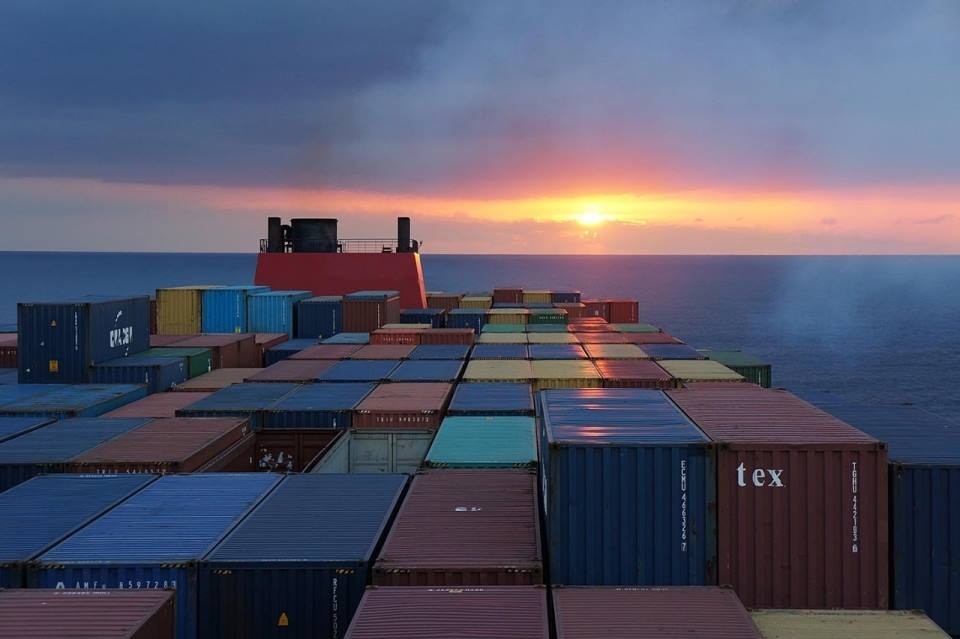
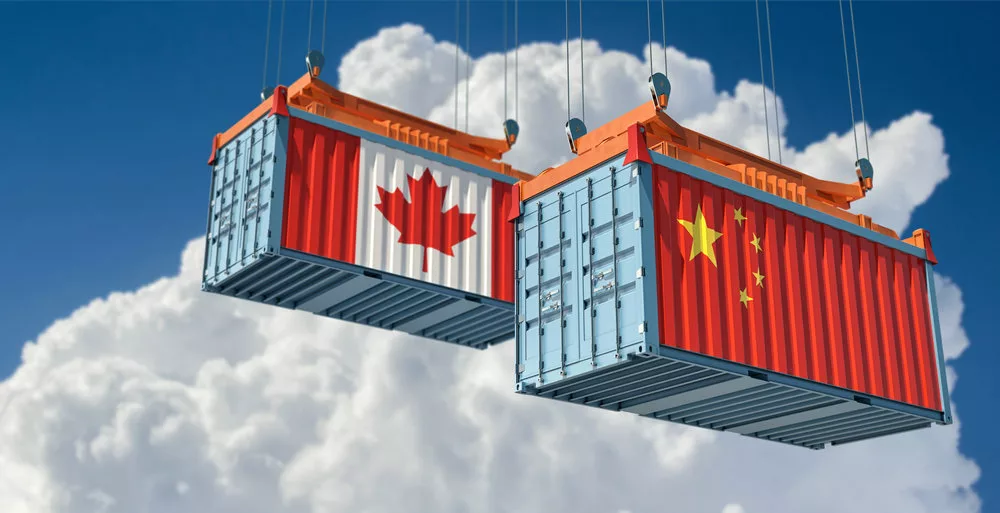


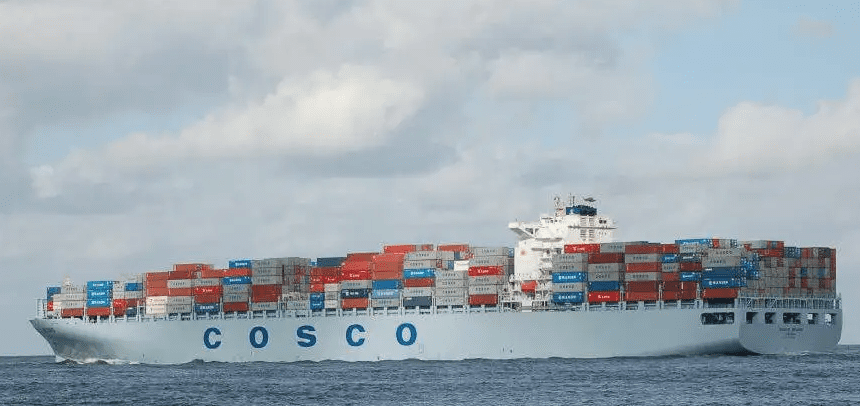





 Afrikaans
Afrikaans Shqip
Shqip አማርኛ
አማርኛ العربية
العربية Հայերեն
Հայերեն Azərbaycan dili
Azərbaycan dili Euskara
Euskara Беларуская мова
Беларуская мова বাংলা
বাংলা Bosanski
Bosanski Български
Български Català
Català Cebuano
Cebuano Chichewa
Chichewa 简体中文
简体中文 繁體中文
繁體中文 Corsu
Corsu Hrvatski
Hrvatski Čeština
Čeština Dansk
Dansk Nederlands
Nederlands English
English Esperanto
Esperanto Eesti
Eesti Filipino
Filipino Suomi
Suomi Français
Français Galego
Galego ქართული
ქართული Deutsch
Deutsch Ελληνικά
Ελληνικά Kreyol ayisyen
Kreyol ayisyen Harshen Hausa
Harshen Hausa Ōlelo Hawaiʻi
Ōlelo Hawaiʻi עִבְרִית
עִבְרִית हिन्दी
हिन्दी Hmong
Hmong Magyar
Magyar Íslenska
Íslenska Igbo
Igbo Bahasa Indonesia
Bahasa Indonesia Gaeilge
Gaeilge Italiano
Italiano 日本語
日本語 Basa Jawa
Basa Jawa ಕನ್ನಡ
ಕನ್ನಡ Қазақ тілі
Қазақ тілі ភាសាខ្មែរ
ភាសាខ្មែរ 한국어
한국어 كوردی
كوردی Кыргызча
Кыргызча ພາສາລາວ
ພາສາລາວ Latin
Latin Latviešu valoda
Latviešu valoda Lietuvių kalba
Lietuvių kalba Lëtzebuergesch
Lëtzebuergesch Македонски јазик
Македонски јазик Malagasy
Malagasy Bahasa Melayu
Bahasa Melayu മലയാളം
മലയാളം Maltese
Maltese Te Reo Māori
Te Reo Māori मराठी
मराठी Монгол
Монгол ဗမာစာ
ဗမာစာ नेपाली
नेपाली Norsk bokmål
Norsk bokmål پښتو
پښتو فارسی
فارسی Polski
Polski Português
Português ਪੰਜਾਬੀ
ਪੰਜਾਬੀ Română
Română Русский
Русский Samoan
Samoan Gàidhlig
Gàidhlig Српски језик
Српски језик Sesotho
Sesotho Shona
Shona سنڌي
سنڌي සිංහල
සිංහල Slovenčina
Slovenčina Slovenščina
Slovenščina Afsoomaali
Afsoomaali Español
Español Basa Sunda
Basa Sunda Kiswahili
Kiswahili Svenska
Svenska Тоҷикӣ
Тоҷикӣ தமிழ்
தமிழ் తెలుగు
తెలుగు ไทย
ไทย Türkçe
Türkçe Українська
Українська اردو
اردو O‘zbekcha
O‘zbekcha Tiếng Việt
Tiếng Việt Cymraeg
Cymraeg יידיש
יידיש Yorùbá
Yorùbá Zulu
Zulu